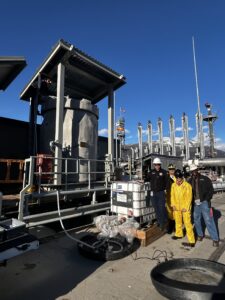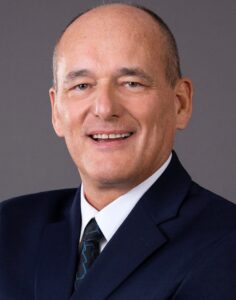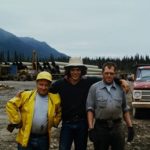
Last fall, Alyeska and contractor crews completed upgrades to the fixed firefighting foam proportioning system on Berth 5 at the Valdez Marine Terminal after lengthy research, testing, and approval process. The new fluorine-free foam system was approved by the state fire marshal, who witnessed its functional check out along with third party technicians and representatives.
This marks the first of many firefighting foam systems that are being upgraded to accommodate a shift towards fire protection on the Trans Alaska Pipeline System, or TAPS, that is free from perfluoroalkyl and polyfluoroalkyl substances, also known as PFAS. While a recently passed state law banning the use of PFAS-containing firefighting foams carries a temporary exemption for use in the oil and gas industry, Alyeska personnel have been working toward the utilization of fluorine-free firefighting foams for several years, long before the state law passed. Plans are in place to continue the eventual transfer of the remaining fixed firefighting systems to safer and more environmentally friendly foams over the next several years. Berth 4 will undergo an identical upgrade starting in spring of 2025.
For the past three years, a multi-disciplined working group worked diligently to find a new system that would meet both fire safety and environmental standards. The group consisted of firefighting professionals, engineers, environmental coordinators, regulatory compliance specialists, procurement team members, and implementation leads from around TAPS. The new system has been designed with operations and maintenance in mind, leveraging state of the art technology that is both simpler to operate, and simpler to validate, with built-in testing features that do not rely on the discharge of foam.
“This new system demonstrates Alyeska’s dedication to environmental protection and personnel safety, especially in regards to the stewardship of Prince William Sound,” said Sean Wisner, Alyeska Fire Chief. “It puts us in a much better place from a firefighting perspective, and I am proud of the work that this team did over the past several years to get us to this point. The workgroup embodied the ‘speak and work as one team’ mindset throughout the research and implementation phases of this historic initiative.”


